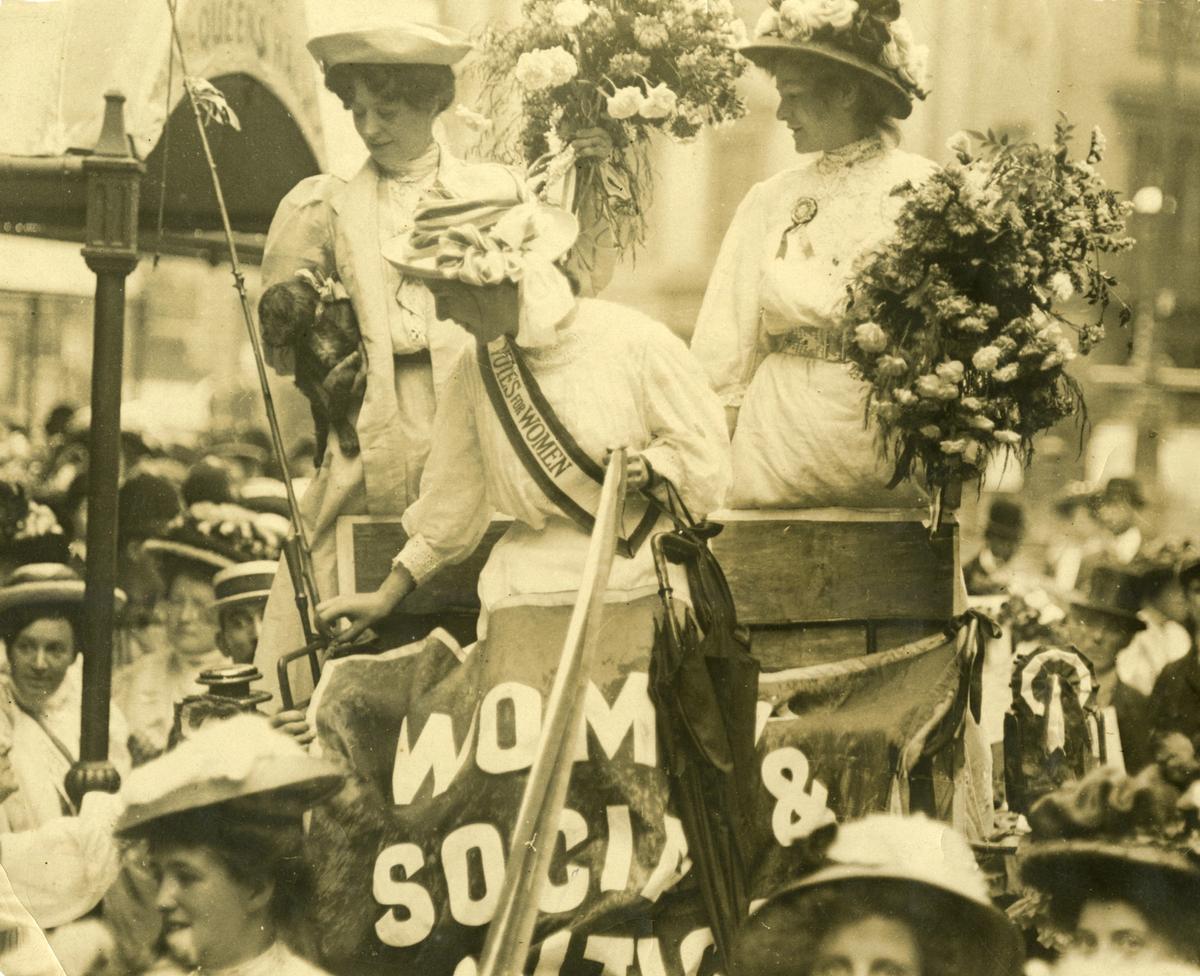As of today, International Women’s Day (8 March), women and girls across the UK can sign up to participate in the country’s biggest-ever participatory work of art—a celebration of 100 years since the first British women got the vote. Online registration is now open for Processions, an event orchestrated by the public arts charity Artichoke, which invites participants to walk the streets of Belfast, Cardiff, Edinburgh and London simultaneously on Sunday 10 June, wearing the historic colours of the suffragette movement.
In each city, streams of women—including anyone who identifies as female and non-binary people—dressed in either white, green and purple, will come together to mark the centenary of UK Parliament’s 1918 Representation of the People Act, which gave women over 30 who owned property the right to vote. It was a landmark moment in the campaign for women’s suffrage, 15 years after Emmeline Pankhurst and her daughters founded the militant Women's Social and Political Union (nicknamed the “suffragettes” by the Daily Mail).
In the run-up to Processions, 100 UK organisations will work with female, female-identifying and non-binary artists and their local communities to create 100 banners for the occasion, inspired by the eye-catching designs of the suffragettes. These include museums such as the Whitworth in Pankhurst’s hometown of Manchester and Turner Contemporary in Margate, Glasgow Women’s Library and Edinburgh College of Art.
Among the artists, Historic England has commissioned Lucy Orta and students at the London College of Fashion, where she is a professor, to make a banner with former inmates of Holloway prison. Many of the suffragettes were imprisoned there and notoriously force-fed after they went on hunger strike. The banner will explore the experience of 21st-century female prisoners.
Processions is part of the final season of public art commissions by 14-18 NOW to commemorate the centenary of the First World War. Further planned highlights include the unveiling of the first monument to a woman in London’s Parliament Square, a statue of the suffragist campaigner Millicent Fawcett by Gillian Wearing, in late spring; William Kentridge’s musical performance in Tate Modern’s Turbine Hall in July telling the story of the African porters and carriers who supported British, French and German forces during the war; and the film director Danny Boyle’s still-secretive community project on 11 November that will mark 100 years since the Armistice brought the fighting to an end.


